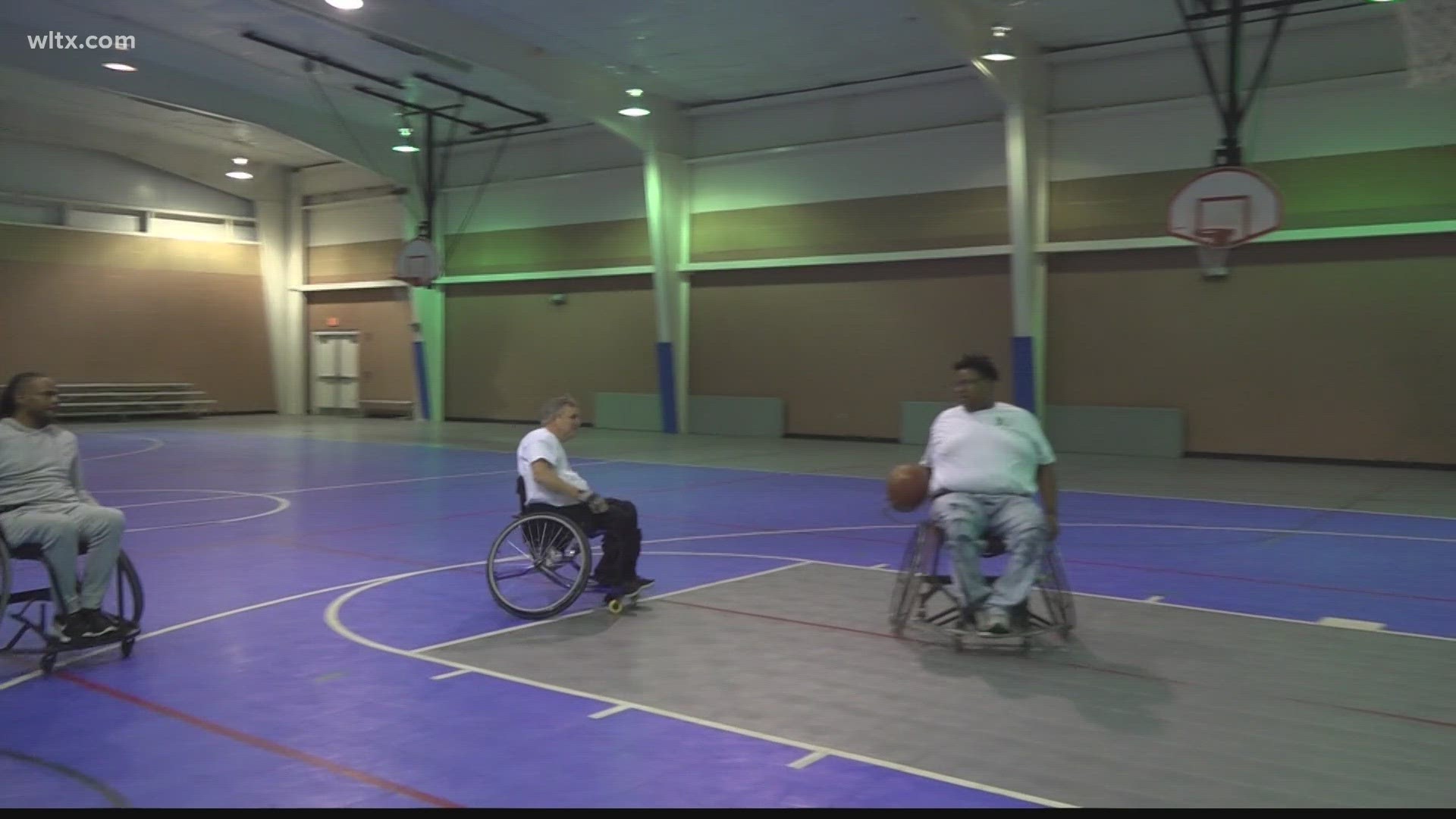COLUMBIA, S.C. — The repeated sound of basketballs tapping the wooden floor of Denny Terrace gym was heard while wheels glided across the wooden court, signaling a new season of adaptive wheelchair basketball in Columbia.
The team was started in 1984 by David Stringer who was left with a spinal cord injury at 15 years old after a diving accident in Goose Greek.
After being in the hospital for two months, Stringer was introduced to Rick Ciccotto, a swimmer who won a gold medal in the 1988 Paralympic Games in Seoul, South Korea. Stringer said Ciccotto inspired him to play several adaptive sports, like tennis and basketball.
“I Couldn't believe you could do those things after being injured,” said Stringer.
For Stringer, sports were a saving grace. Now he wants to help others the way he was helped.
“It gives you the strength to push your chair, to get in and out of the car, to do all of life's little things,” said Stringer.
The team has grown to 12 players, including its first female player.
One of those players, Devin Perry, who was born with spina bifida, joined the team when he was 14. Perry said he always played basketball recreationally with his friends but really learned how to play through the league.
“It was different, it was fun and stuff because you get to travel on the weekends when you have games. It makes you independent and learn different stuff,” said Perry.
Stringer says the goal is to bridge the gap between ability and disability.
“I think a lot of people just don't realize they can still do these things. they get injured, they might get depressed, stay home,” said Stringer. “Until we get them out in one of these wheelchairs and allow them to see what they can still do, that's an obstacle.”
September is Spinal Cord Injury Awareness Month. About 300,000 Americans live with Spinal Cord Injuries, with roughly 17,000 new cases reported each year. The South Carolina Department of Disabilities and Special Needs helps survivors get access to vital services.
“We connect to individuals with spinal cord injury with case managers who can assist them with accessing services through the service delivery system in the state,” said Head and Spinal Cord Injury Director Melissa Ritter. “Sometimes that can be a little complicated. So that having somebody to as a guide is helpful.”
Ritter added the agency is serving 2,000 people with brain and spinal cord injury.
"I think a lot of the obstacles that people with spinal cord injury face are related to access to services," said Ritter. "So, being aware of the services that are available in the state after injury is helpful to those people who, you know, had a life that was different before spinal cord injury and now are adjusting to a new life."
Perry and Stringer want people to know a disability won’t stop you from living life.
“Everybody’s the same. Even if they have a disability or not you know,” said Perry.
“It doesn’t prevent you from accomplishing things in life you can still have goals you can still accomplish you can still go to school, and have a family. You can do all the same things in life that others can,” said Stringer.
The team plays against teams from Charlotte, Raleigh, Spartanburg, and Myrtle Beach.
The team practices twice a week, from 6:30 to 8:30 p.m. on Thursdays and 3 to 5 p.m. on Saturdays in the Denny Terrace gym, where supporters can pop in.
Stringer is also working to bring back adaptive tennis in the spring.

